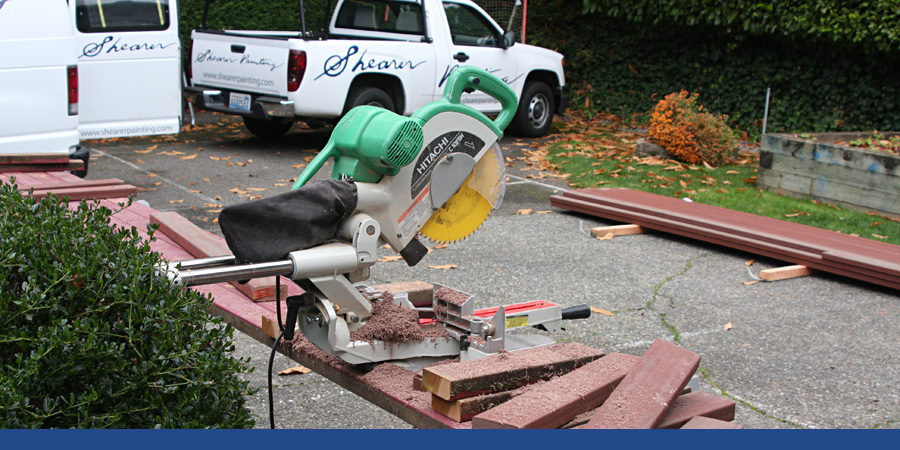


What is Trex?
Trex is a wood substitute, made from wood and plastic fibers, often used for decking, railing, fencing, and trim. The plastic and wood comes from reclaimed or recycled resources, like used pallets from woodworking operations, sawdust, and recycled grocery bags. Trex screens all materials to make sure only the highest quality ingredients go into the Trex factory. By using this process, Trex keeps thousands of wood scraps and plastic out of landfills each year and takes pride in what the company calls “environmental responsibility.” It also gives a building coveted LEED points.
The Trex style provides a higher level of comfort and performance, in that Trex doesn’t rot, splinter, or warp, and you will never have to stain or paint it for upkeep purposes. Many customers think that Trex decking looks beautiful, and they love walking around it with bare feet with no risk of splinters.
Remember, decking is exposed to the elements – weather and climate alone is going to generate some wear and tear. It also is slip resistant, won’t be damaged by insects, has a natural look that no other composite is able to match, offers the widest range of textures, styles, and colors, is easy to fasten and cut, and finally, has an industry-leading warranty for residential and commercial products.
It’s true that Trex is more expensive than wood (by about 30%), but that is because you pay for what you get; with Trex, you’re paying for the highest quality wood composite. And since the maintenance costs are so minimal, value is quickly gained over time. According to Trex’s website, after four years, “the total cost of owning a Trex deck equals the cost of a pressure-treated wood deck. And over the life of the purchase, Trex offers a greater value than wood.”
Most customers agree – Trex decking, while a bit more expensive, will most likely save you money in the long run. It looks like wood and feels like wood, but you won’t have to replace it because of wood rot or warping, like you eventually would with wood.
Sources:
http://www.trexpartners.com/faq
http://improvementweb.com/composite-decking-vs-wood-decks/49/
http://community.cookinglight.com/showthread.php?t=89884
http://www.ehow.com/about_6367411_trex-decks-vs_-wood-decks.html